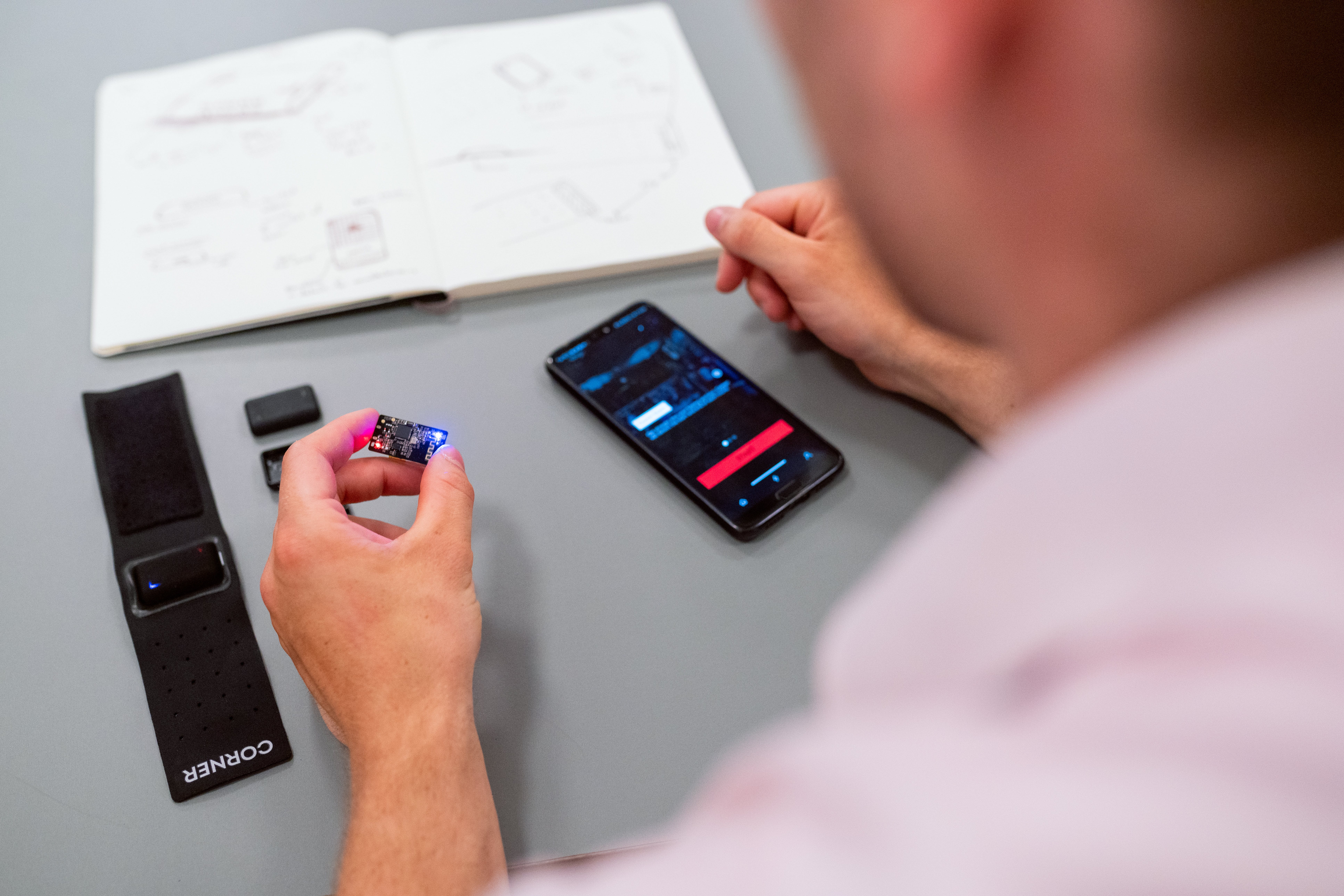In today’s fast-evolving digital landscape, mobile applications have become an integral part of our daily lives. They offer a plethora of functionalities, from simplifying complex tasks to providing entertainment on the go. For students pursuing computer science or related fields, embarking on a mobile application development final year project is not just a curriculum requirement but an opportunity to showcase their technical prowess and creativity.
Such projects are a gateway for students to dive deep into the practical aspects of coding, UI/UX design, and problem-solving. They also provide a platform to experiment with the latest technologies, whether it’s developing apps for Android, iOS, or cross-platform solutions. By engaging in these projects, students not only hone their technical skills but also enhance their ability to work in teams, manage time, and communicate their ideas effectively.
Moreover, a well-executed mobile application project can significantly boost a student’s portfolio, making them more appealing to potential employers. It serves as a testament to their dedication, innovation, and ability to translate theoretical knowledge into real-world applications.
At Biz4Solutions, we believe in empowering the next generation of tech innovators. Whether you need guidance on project ideas, or expert advice on the latest development tools and frameworks, we are here to help. Contact us today to learn more about how we can assist you in your mobile application development journey!
Importance of Mobile Application Development Projects

Undertaking a mobile application development final year project is crucial for several reasons. First and foremost, it bridges the gap between theoretical knowledge and practical application. While textbooks and lectures provide fundamental concepts, actual development work exposes students to real-world challenges such as debugging, performance optimization, and user experience design.
Additionally, these projects foster a plethora of essential skills. For instance, working on a mobile app project enhances a student’s proficiency in programming languages like Java, Swift, Kotlin, or JavaScript. It also provides hands-on experience with development frameworks like React Native, Flutter, and Xamarin.
Another significant benefit is the improvement of soft skills. During the project lifecycle, students often collaborate with peers, mentors, and possibly even industry professionals. This interaction hones their communication, teamwork, and project management abilities. Moreover, tackling a project from inception to deployment teaches students how to think critically and solve complex problems creatively.
From a career perspective, a well-executed mobile app project can be a standout feature in a student’s portfolio. It demonstrates their capability to conceive, design, and implement a functional solution. This practical experience is incredibly valuable in job interviews and can set candidates apart in a competitive job market.
Furthermore, with the ever-growing demand for mobile applications, having hands-on experience in this field makes students more marketable. Employers are constantly on the lookout for candidates who can hit the ground running, and a comprehensive mobile app development project can provide just that.
Innovative Mobile App Project Ideas for Students
As a final-year student delving into mobile application development final year projects, choosing an innovative and impactful idea is paramount. Such projects not only exhibit your technical prowess but also your creativity and problem-solving skills. Here are some compelling project ideas to consider:
- Health and Wellness Tracker: Develop an app that helps users track their fitness goals, monitor their diet, and manage their mental well-being. Integrate features like step counting, meal logging, meditation exercises, and personalized health tips.
- Smart Home Automation: Create a mobile app that allows users to control various smart home devices such as lights, thermostats, and security cameras. Implement functionalities like voice commands, scheduling, and remote access to enhance user convenience.
- Educational Platforms: Build an app that offers interactive learning experiences for students. Incorporate features like quizzes, video tutorials, flashcards, and progress tracking to create an engaging educational environment.
- Augmented Reality (AR) Shopping Assistant: Develop an AR-based app that enhances the shopping experience by allowing users to visualize products in their real-world environment. This can be particularly useful for furniture, home décor, and clothing items.
- Environmental Monitoring: Design an app that helps users monitor environmental factors such as air quality, water quality, and noise levels in their vicinity. Provide real-time data and actionable insights to promote eco-friendly practices.
- Social Networking for Niche Communities: Create a social networking app tailored to specific interest groups or communities. Implement features like forums, event organizing, and content sharing to foster engagement and interaction among users.
Choosing an innovative project idea not only showcases your technical capabilities but also demonstrates your ability to think outside the box and address real-world problems. These project ideas can serve as a strong foundation for your career in mobile application development.
Tools and Technologies for Mobile App Development

Embarking on a mobile application development final year project necessitates familiarity with a diverse array of tools and technologies. The choice of the right tools can significantly influence the effectiveness and efficiency of your project. Here are some essential tools and technologies you should consider:
- Integrated Development Environments (IDEs): Popular IDEs such as Android Studio for Android and Xcode for iOS provide comprehensive environments for writing, testing, and debugging your code. They offer robust tools for UI design, code refactoring, and performance analysis.
- Programming Languages: Depending on your platform, you might need to use different programming languages. For Android, Java and Kotlin are widely used, while iOS development typically involves Swift and Objective-C. Cross-platform development can be achieved with languages like Dart (using Flutter) or JavaScript (using React Native).
- Frameworks and Libraries: Utilize frameworks such as Flutter, React Native, and Xamarin to build cross-platform applications. These frameworks help streamline the development process and ensure a consistent user experience across different devices.
- Backend Services: Implementing backend services is crucial for apps that require data storage, user authentication, or real-time updates. Platforms like Firebase and Amazon Web Services (AWS) provide scalable backend solutions and APIs to manage these functionalities efficiently.
- Version Control Systems: Tools like Git and platforms such as GitHub or GitLab are essential for version control and collaborative development. They help track changes, manage code repositories, and facilitate team collaboration.
- Design Tools: Creating an intuitive and visually appealing user interface is vital. Design tools like Sketch, Figma, and Adobe XD enable you to design and prototype your app’s UI/UX effectively.
- Testing and Debugging Tools: Ensure the quality and performance of your app using testing tools such as Appium, JUnit for Android, and XCTest for iOS. These tools help identify and fix bugs, ensuring a seamless user experience.
Mastering these tools and technologies not only enhances your ability to develop high-quality mobile applications but also prepares you for the dynamic and evolving landscape of mobile app development.
Tips for Successfully Completing Your Mobile App Project

Successfully completing your mobile application development final year project can be a challenging yet rewarding experience. Here are some tips to guide you through the process and ensure your project is a success:
- Plan Thoroughly: Start with a detailed project plan. Define your objectives, scope, and deliverables. Break down the project into manageable tasks and set realistic timelines for each phase. This helps in staying organized and focused.
- Research Extensively: Conduct thorough research on existing solutions, industry trends, and user expectations. This will help you design a unique and valuable application. Look into case studies and analyze what worked and what didn’t in similar projects.
- Choose the Right Tools: As discussed in the previous section, selecting the appropriate tools and technologies is crucial. Ensure you are comfortable with the chosen tools and that they align with your project requirements.
- Focus on User Experience: A user-friendly interface and seamless user experience are critical for any mobile app. Prioritize intuitive navigation, responsive design, and accessibility. Gather feedback from potential users and iterate on your design based on their input.
- Test Rigorously: Rigorous testing is essential to identify and resolve bugs and performance issues. Use automated testing tools and conduct manual testing to ensure your app runs smoothly across different devices and operating systems.
- Document Your Progress: Keep detailed documentation of your development process, including design decisions, code changes, and testing results. This not only helps in keeping track of your progress but also makes it easier to explain your project during evaluations.
- Seek Feedback and Iterate: Don’t hesitate to seek feedback from peers, mentors, and potential users throughout the development process. Constructive criticism can provide valuable insights and help you improve your app.
- Stay Updated: The field of mobile app development is constantly evolving. Stay updated with the latest trends, tools, and best practices by following industry blogs, attending webinars, and participating in online communities.
- Manage Your Time Wisely: Time management is crucial, especially when juggling multiple responsibilities. Prioritize tasks, avoid procrastination, and allocate sufficient time for each stage of your project.
By following these tips, you can navigate the complexities of your mobile app project more effectively and deliver a high-quality application that stands out. Remember, persistence, attention to detail, and a willingness to learn and adapt are key to your success.
Future Trends in Mobile Application Development

The landscape of mobile application development is ever-evolving, with new trends constantly emerging that shape the future of the industry. Here are some key future trends that aspiring developers should keep an eye on:
- Artificial Intelligence and Machine Learning: AI and ML are revolutionizing mobile apps by enabling personalized user experiences, predictive analytics, and intelligent automation. Applications like chatbots, virtual assistants, and recommendation engines are becoming more sophisticated and integral to user engagement.
- Internet of Things (IoT): The integration of IoT with mobile applications is creating a seamless user experience across various devices. From smart homes to connected cars, mobile apps are acting as the central hub for controlling and monitoring IoT devices, enhancing convenience and functionality.
- 5G Technology: The rollout of 5G networks is set to transform mobile app development by providing faster internet speeds, lower latency, and improved connectivity. This will pave the way for more complex and data-intensive applications, such as augmented reality (AR) and virtual reality (VR) experiences.
- Augmented Reality (AR) and Virtual Reality (VR): AR and VR technologies are gaining traction in various fields, including gaming, education, and retail. Mobile apps leveraging AR and VR can offer immersive experiences, enhancing user interaction and engagement.
- Blockchain Technology: Blockchain is being increasingly adopted in mobile app development for its security, transparency, and decentralization benefits. Applications in finance, healthcare, and supply chain management are leveraging blockchain to ensure data integrity and secure transactions.
- Progressive Web Apps (PWAs): PWAs combine the best features of web and mobile applications, providing a fast, reliable, and engaging user experience without the need for installation. They are becoming a popular choice for businesses looking to reach a broader audience with minimal development effort.
- Cross-Platform Development: With the growing demand for apps that work seamlessly across different platforms, cross-platform development frameworks like Flutter and React Native are gaining popularity. These frameworks allow developers to write code once and deploy it across multiple platforms, reducing development time and costs.
- Enhanced Security Measures: As cyber threats continue to evolve, ensuring the security of mobile applications is paramount. Future trends in mobile app development will focus on implementing advanced security measures, such as biometric authentication, encryption, and secure coding practices, to protect user data and privacy.
Staying informed about these future trends can help you stay ahead in the competitive field of mobile application development. By embracing these innovations, you can create cutting-edge applications that not only meet current user demands but also anticipate future needs.
Ready to take your mobile app development skills to the next level? Contact Biz4Solutions today and discover how we can help you turn your innovative ideas into reality!
